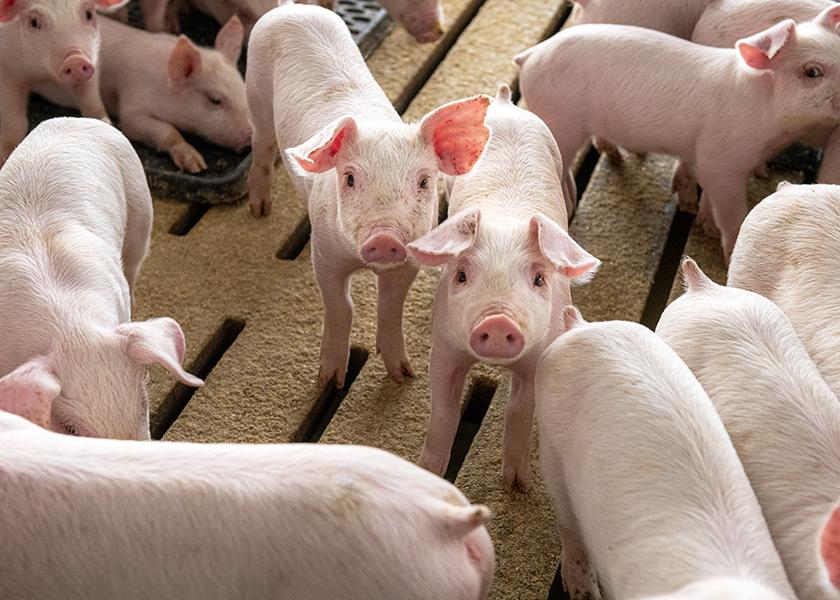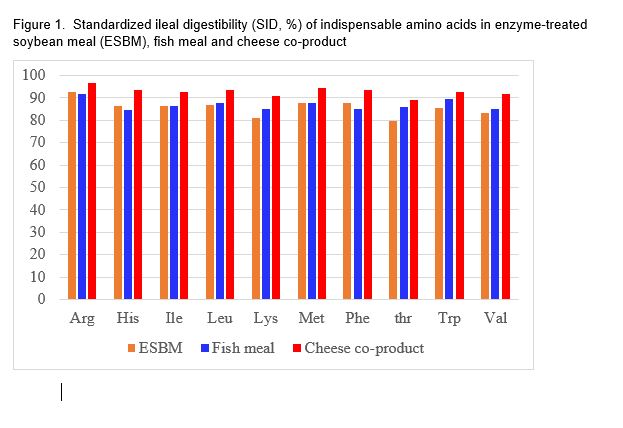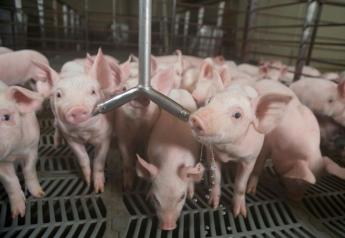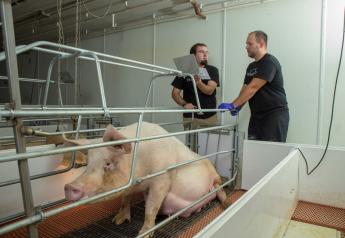Cheese Co-Product Offers High Nutritional Value for Weanling Pigs

By Andrea P. Mallea and Hans H. Stein, Department of Animal Sciences, University of Illinois
For years, milk proteins were often included in diets for weanling pigs because they provided a source of highly digestible amino acids (AA) and did not contain anti-nutritional factors. Unfortunately, milk proteins are expensive and rarely economical to use in pig diets. However, a co-product of cheese production has recently become available as an alternative source of protein and AA in pig diets.
The product is produced by mixing cheese that cannot be used for human consumption and soybean meal and contains approximately 44% crude protein and 3.0 % lysine. There is limited information about the nutritional value of this cheese co-product so we decided to test it out.
We conducted two experiments to test the hypothesis that values for standardized ileal digestibility (SID) of AA and, concentrations of digestible energy (DE) and metabolizable energy (ME) in cheese co-product are greater than in fish meal or enzyme-treated soybean meal.
A batch of cheese co-product, sourced from Keys Manufacturing Co., Inc., in Paris, Ill., was used in both experiments.
In the first experiment, three diets containing cheese co-product, fish meal, or enzyme-treated soybean meal as the only source of protein were formulated and a Nitrogen (N)-free diet was used as well. Diets were fed to pigs that had a cannula installed in the distal ileum and ileal digesta were collected from the cannulas to be able to calculate values for SID of amino acids.
Results indicated that the SID of CP and most AA was not different between enzyme-treated soybean meal and fish meal, but these protein sources had lower (P < 0.05) SID of CP and most AA compared with cheese co-product (Figure 1).
In the second experiment, a corn-based basal diet and three diets containing a mixture of corn and cheese co-product, corn and fish meal, or corn and enzyme-treated soybean meal were formulated. Each diet was fed to eight pigs that were placed in metabolism crates, which allowed for separate collection of urine and feces from the pigs during a four-day collection period following a five-day adaptation period. Samples of diets, feces and urine were analyzed for gross energy (GE) and values for DE and ME were calculated in each ingredient after correcting values for the diets containing cheese co-product, fish meal or enzyme-treated soybean meal for the contribution of DE and ME from corn to these diets.
Results of the second experiment indicated that ATTD of GE was not different among ingredients, but the cheese co-product contained more (P < 0.01) DE and ME than the other ingredients (Table 1). This was if DE and ME were calculated on an as-fed basis and also if calculated on a dry matter basis.
The cheese co-product used in these experiments had a greater digestibility of amino acids and contained more DE and ME than corn, fish meal and enzyme-treated soybean meal. These results indicate that this cheese co-product may be used as a source of animal protein in diets for weanling pigs.
Figure and table provided by Andrea P. Mallea and Hans H. Stein.
More from Farm Journal's PORK:
Pork Leaders to Stop Importing Unprocessed Feed Ingredients from FAD Countries









